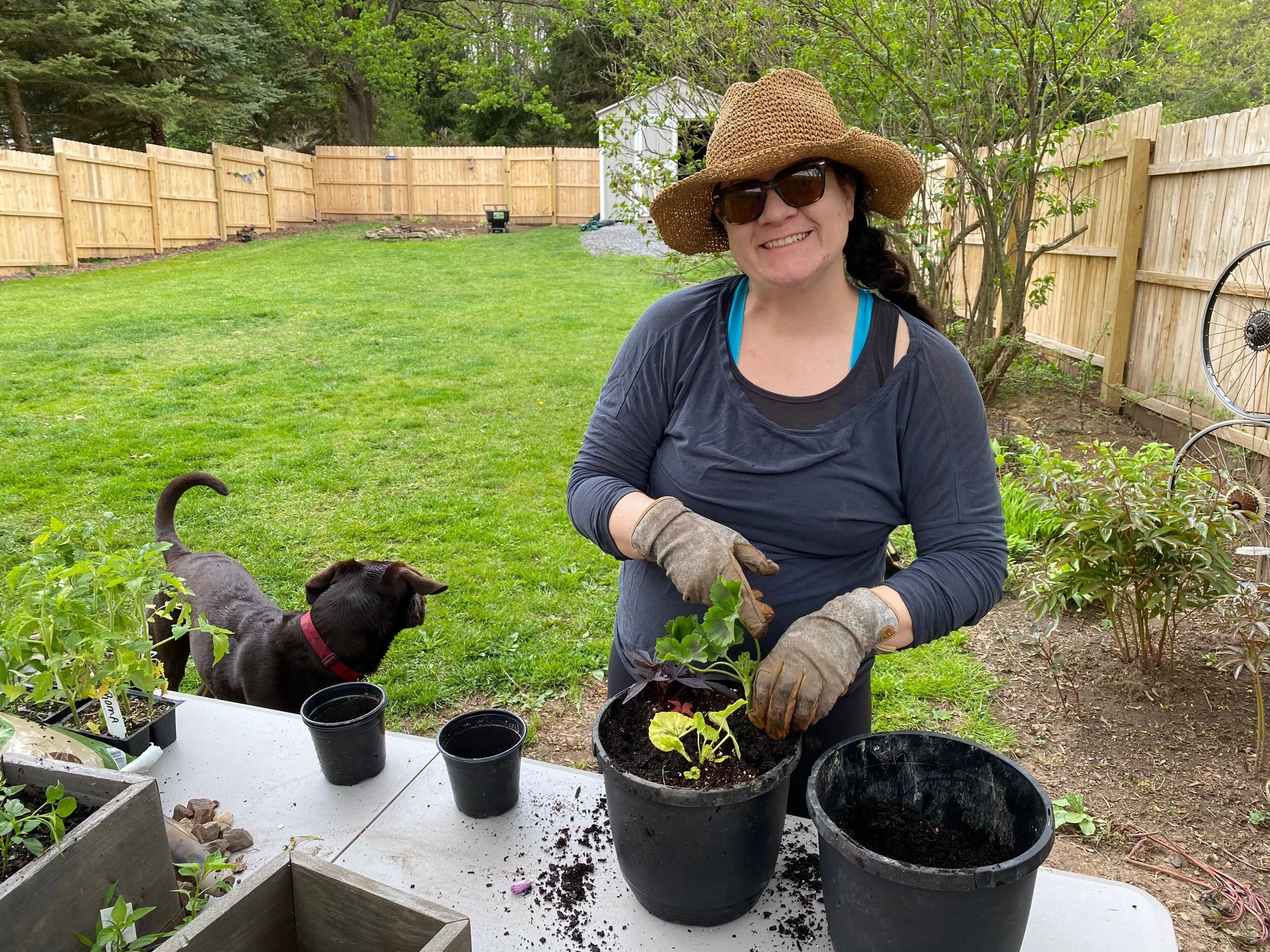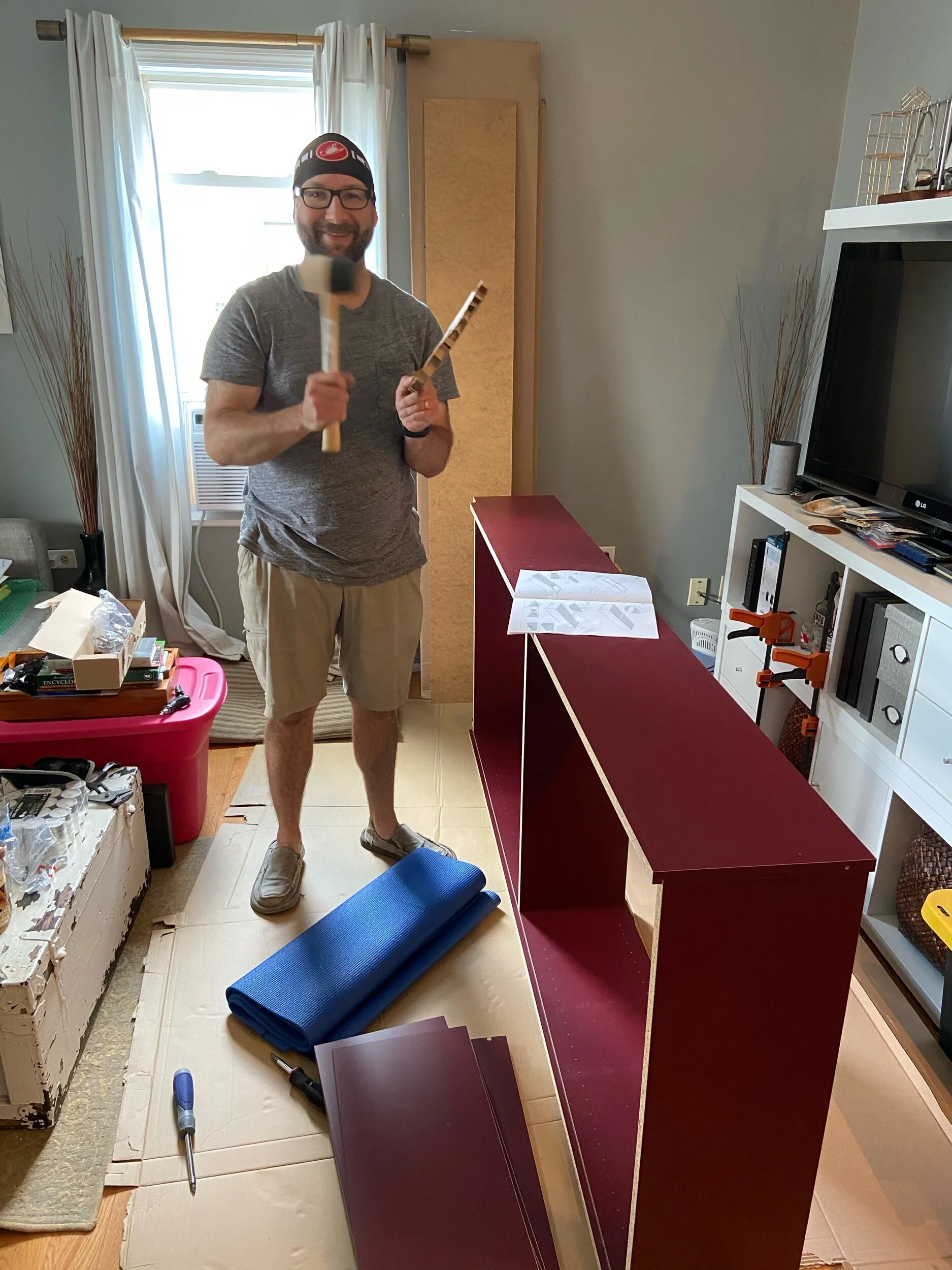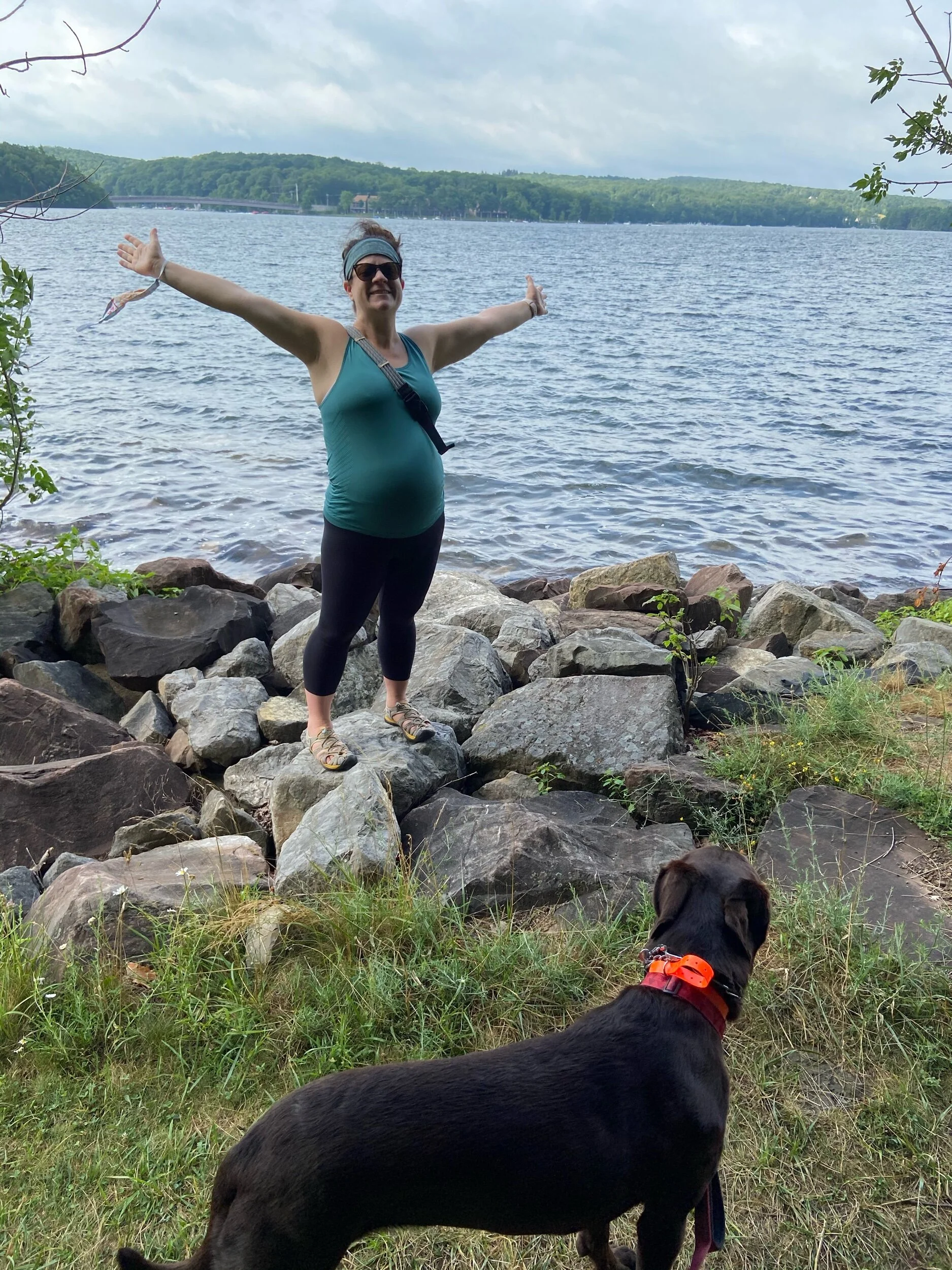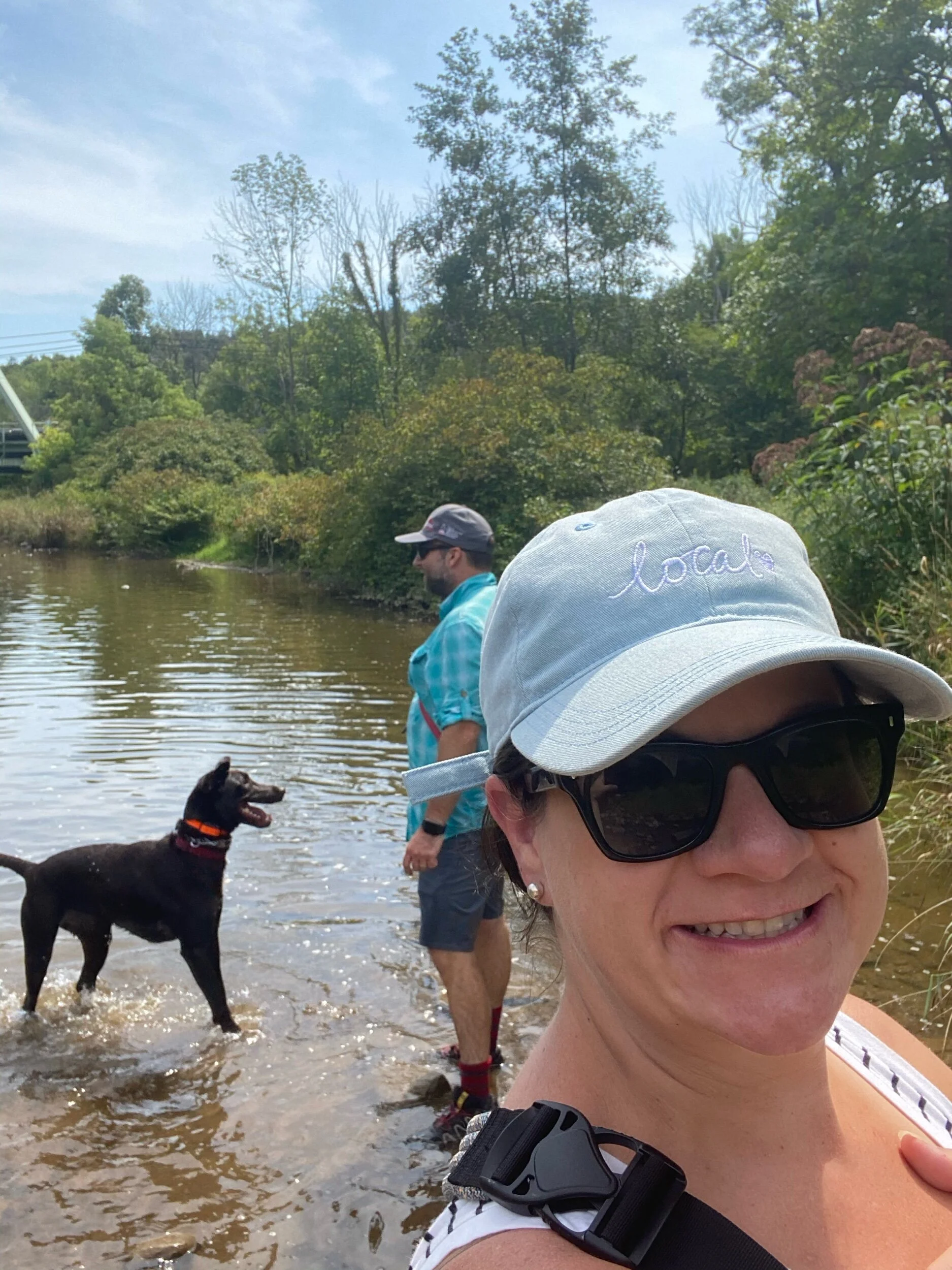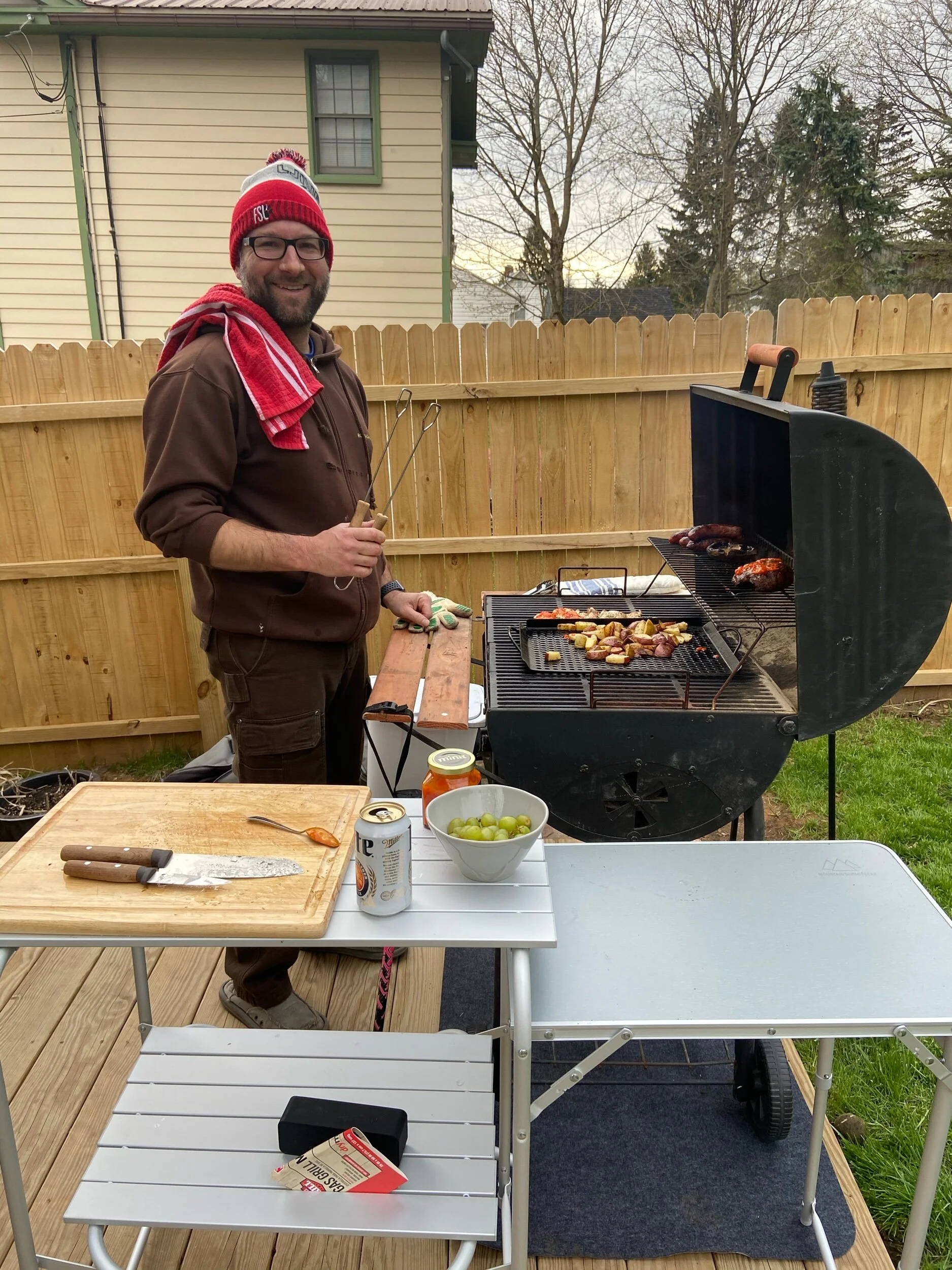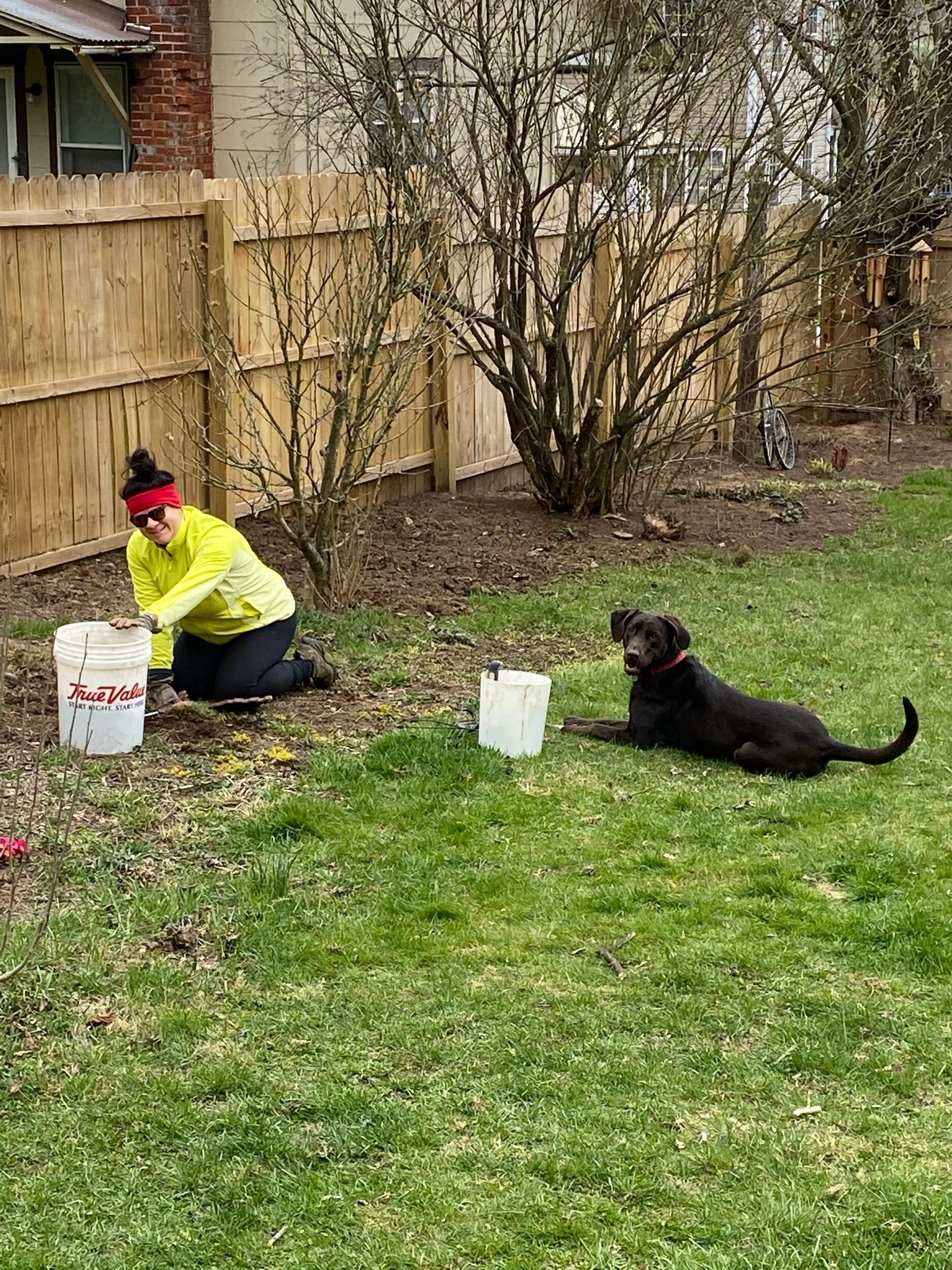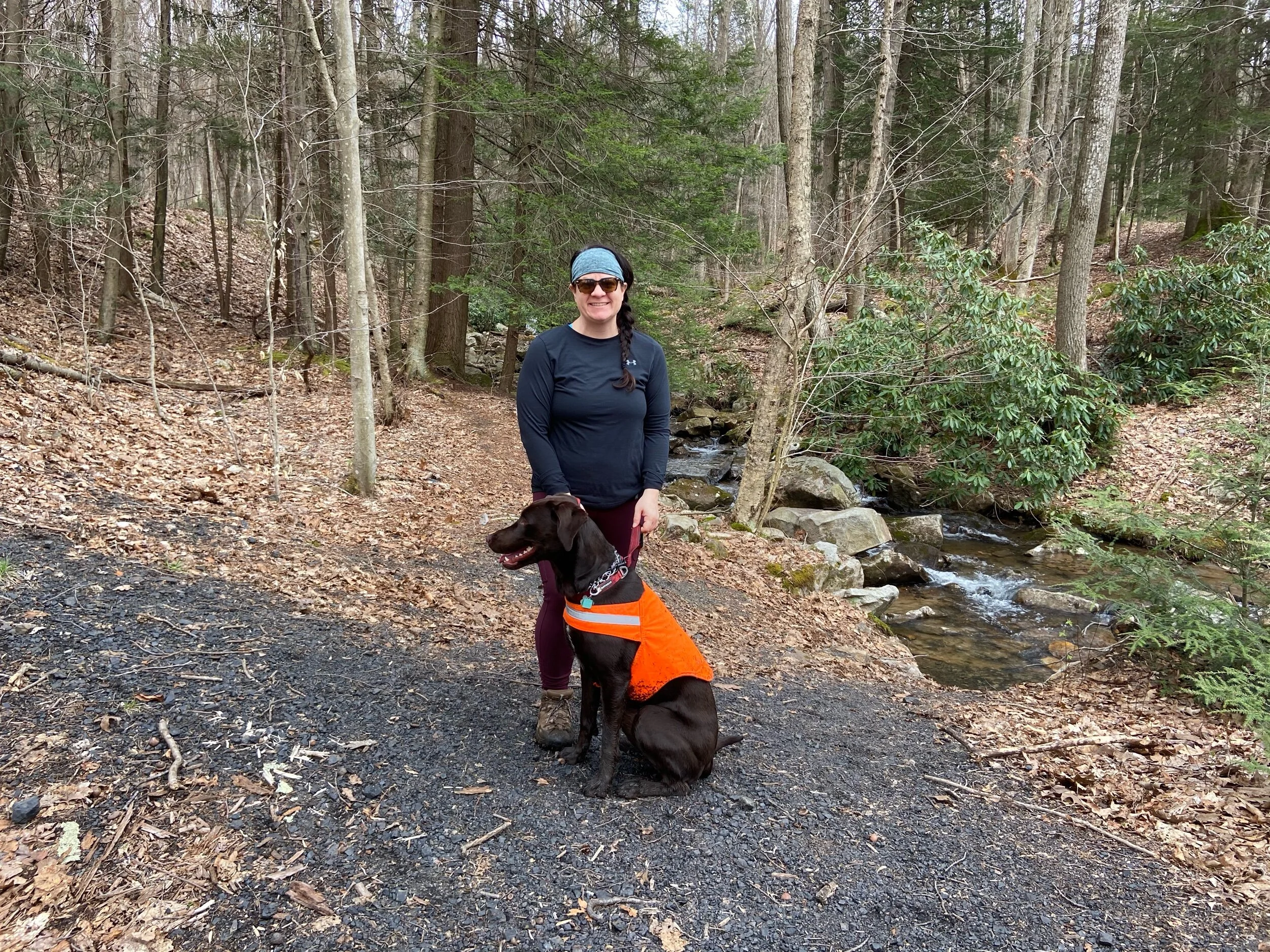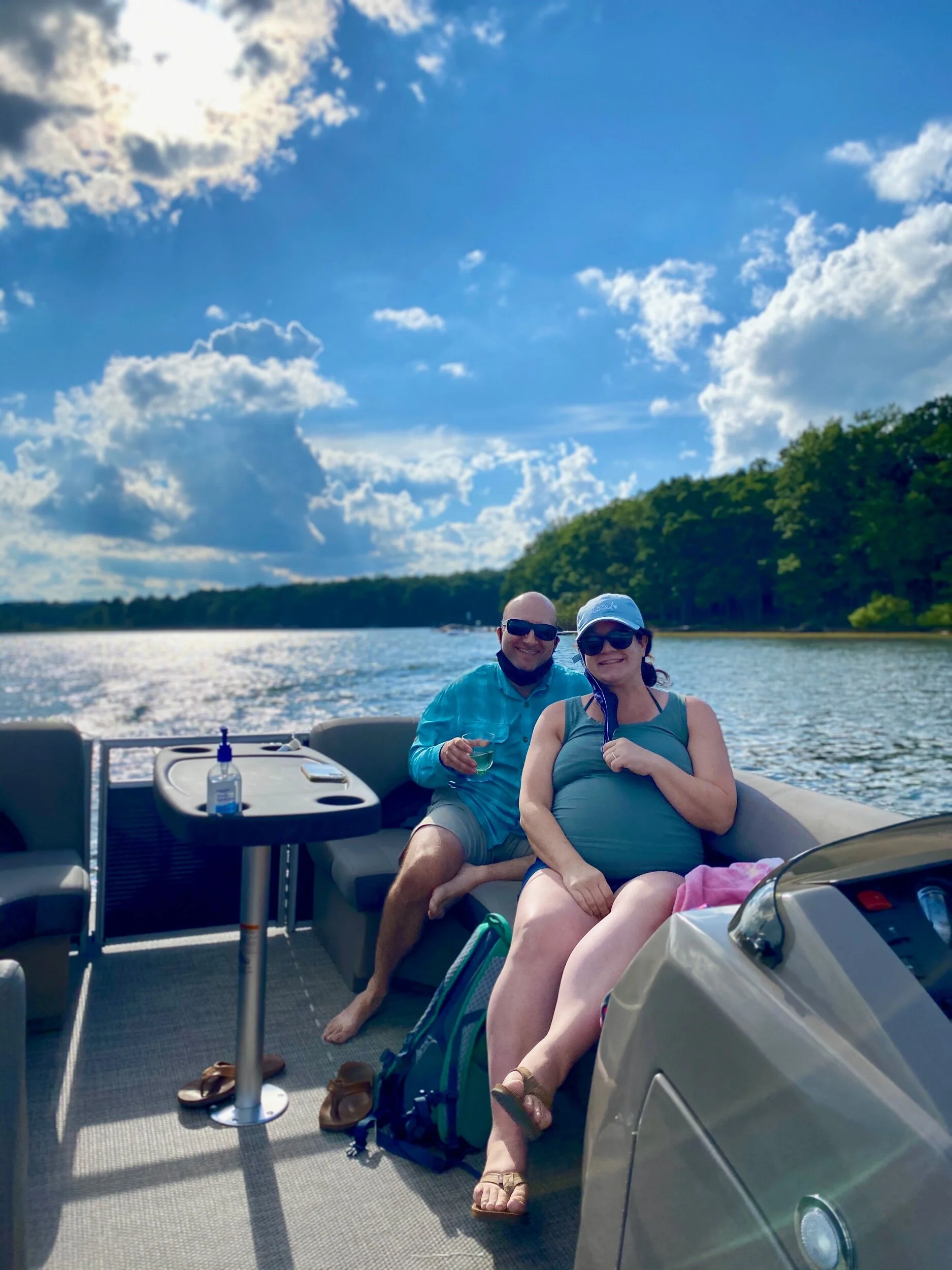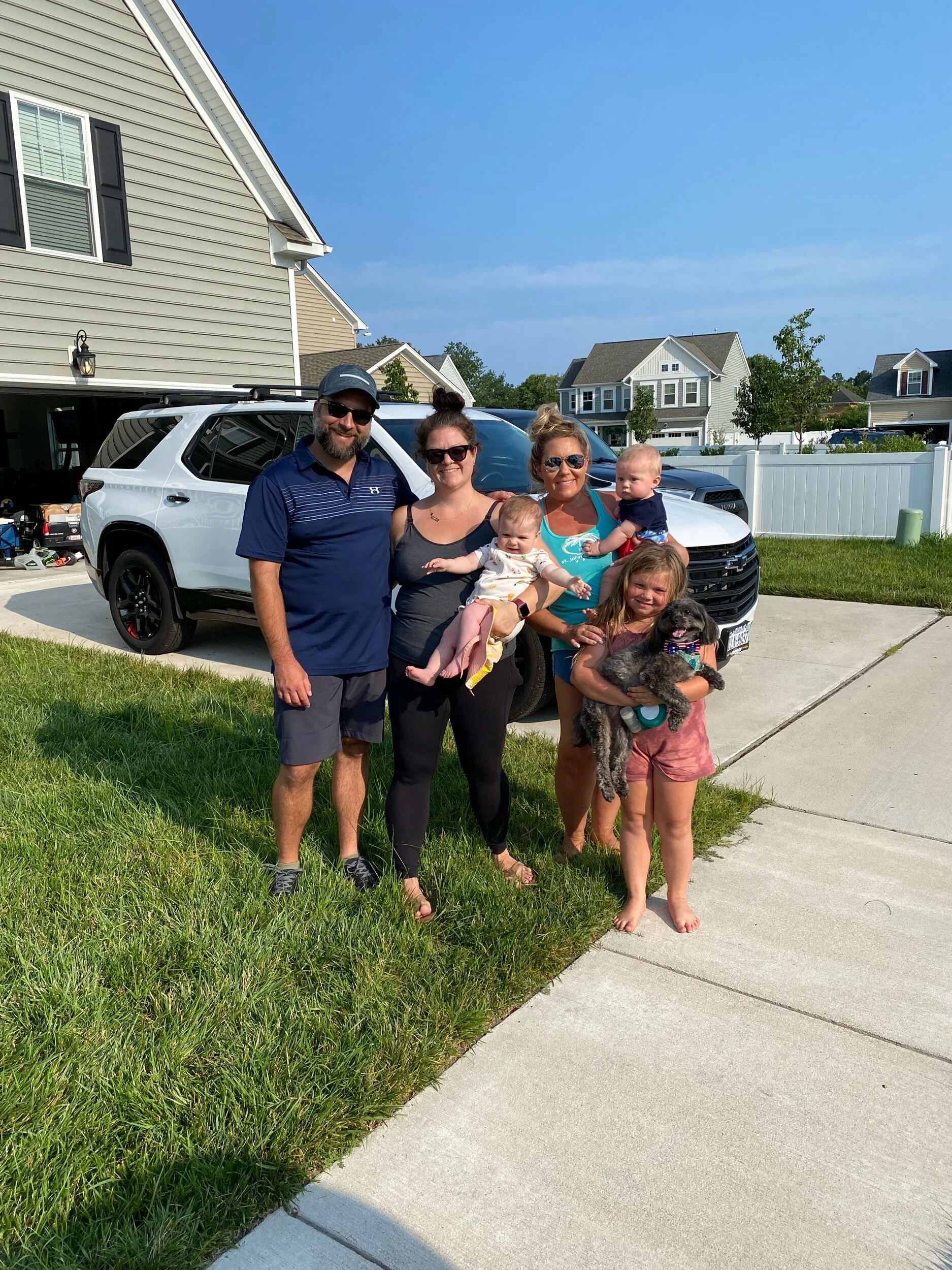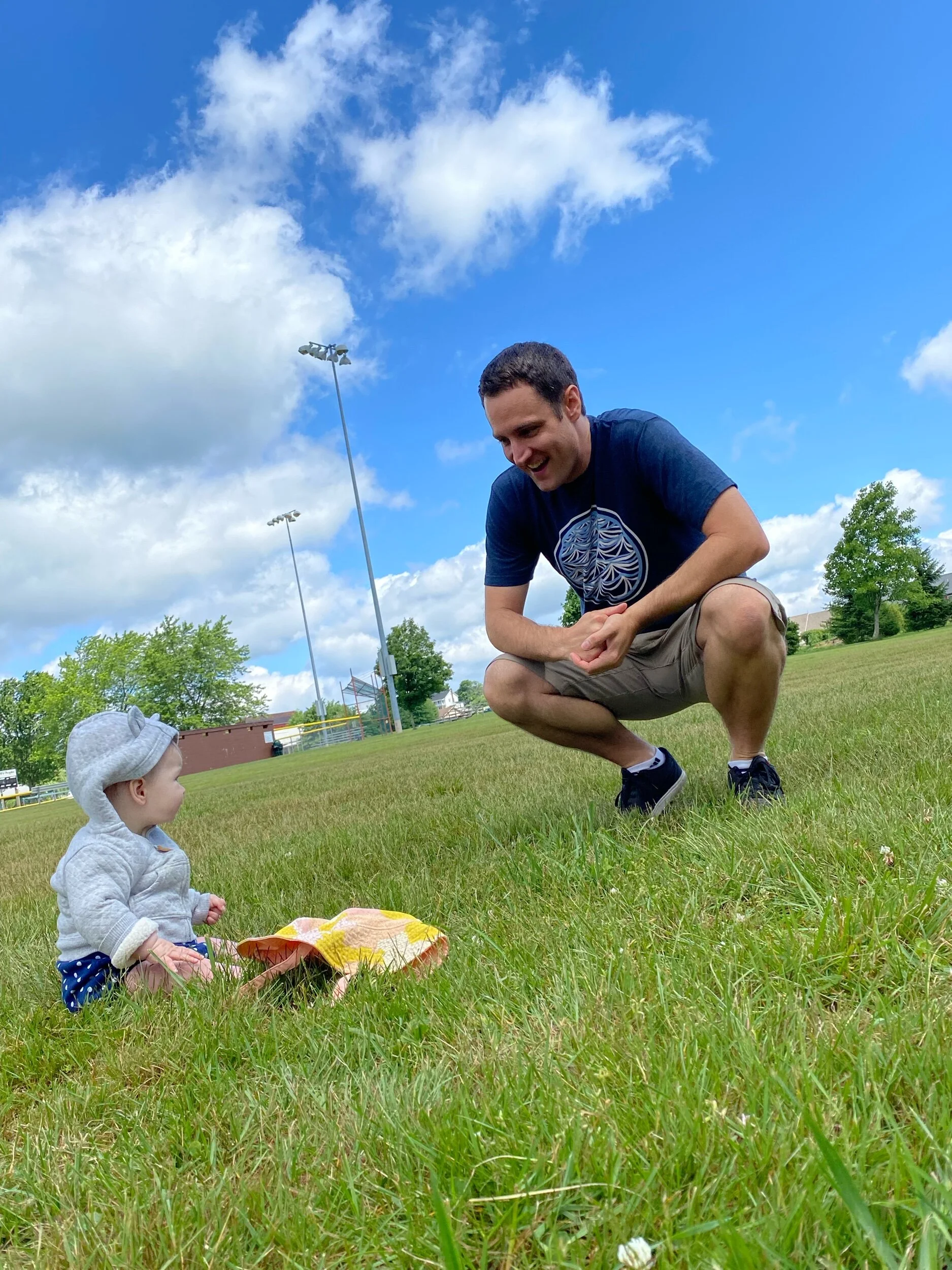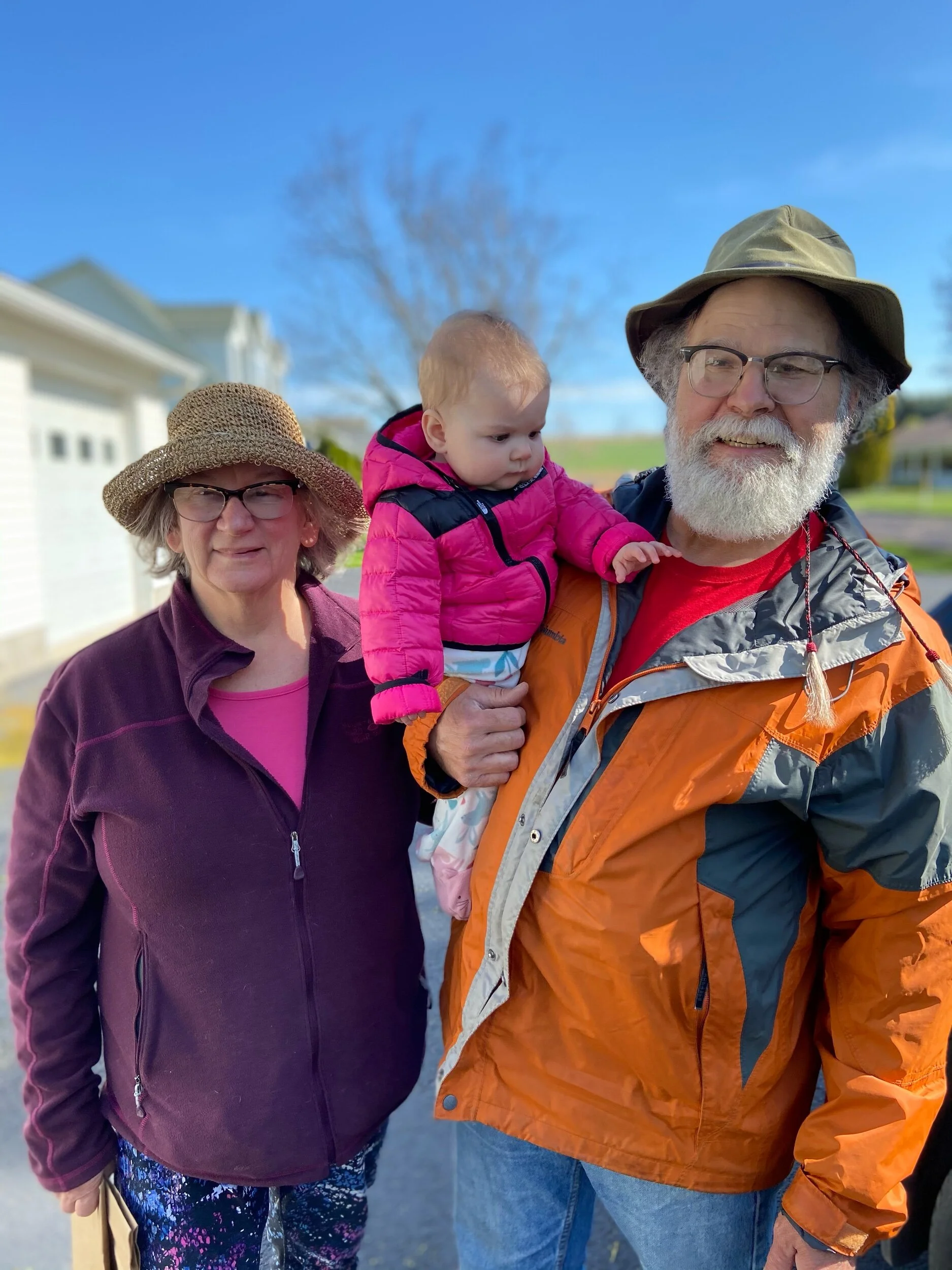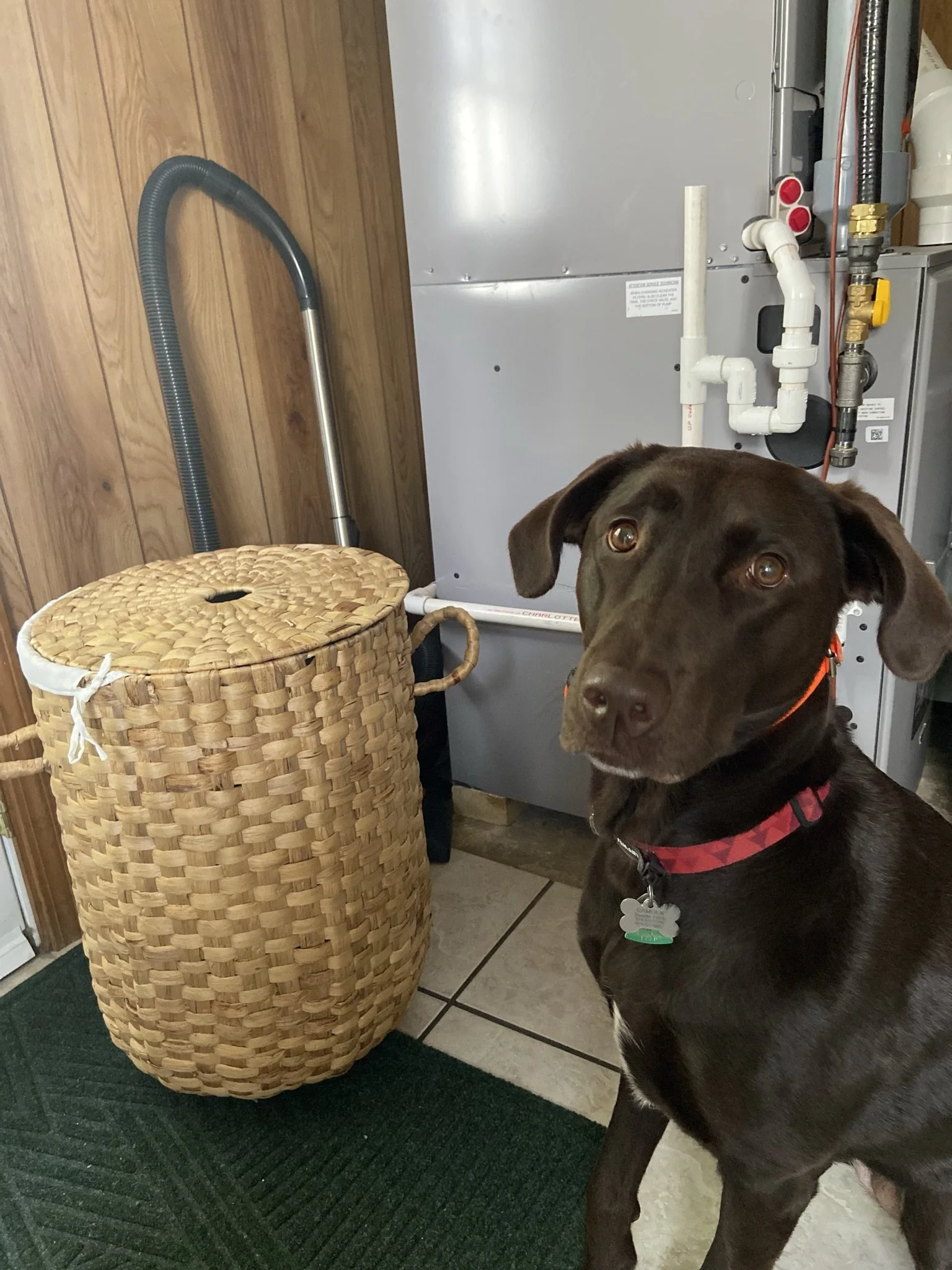Post-Lockdown Social Anxiety — and How I’m Managing It
This may be an unpopular opinion, but I did not mind the lockdown of 2020.
In fact, I kind of liked it…
Last March, when my coworkers and I were told we'd be remote working indefinitely, I hadn't announced my pregnancy publicly yet. And while I was sad not to be able to celebrate with friends, or parade my baby bump through our local farmers' markets all summer long, I was very content being at home with my husband, our dog, and a growing tiny human.
Now, don't get me wrong — we had our rough patches. On our most challenging days, my husband and I felt like we were on top of each other in our small, 750-square-foot house, and it was excruciating not to be able to see and hug our families. But on the upside, we had time to nest, go for walks around the neighborhood and local state parks, and make plans for our growing family. (In between stressing about the ongoing pandemic, of course.)
Our daughter Amelia was born in September of 2020. Her arrival brought endless joy, but also disappointment that we couldn't introduce her to our closest friends and family right away. I could write an entire post — or four — addressing the challenges of having a pandemic baby, but that's not what's been on my mind lately, so we'll have to save that for another day.
It was a year unlike any other, and one that's left a lasting impact in more ways than one.
To start, I've had a pretty hard time adjusting to social engagements again. (Am I the only one?)
Every invitation triggers my anxiety, and I have to run through a pro/con list in my head before deciding whether or not to go. After all the mental list making, I try to say yes to one engagement each week. (With close friends and family who are fully vaccinated.) And guess what? 99.9% of the time I have a great time. But that doesn't mean the stress doesn't still creep in.
To help manage the anxiety, I plan self-care activities before and after a get-together. Whether it's going for a walk, tending to my garden, reading a good book, or just spending the afternoon on the front porch with Amelia, balancing that time has been a crucial practice for enjoying social gatherings like I used to.
On the other hand, the fear of missing out (otherwise known as FOMO) has also hit me hard in a way I never imagined.
Having an infant has made it nearly impossible to jump back into the social life I used to enjoy so much. From live music events at the Wisp to backyard summer BBQs that extended into late-night bonfires, I can't help but feel like I'm missing out on some of the fun — a fact that's even harder to accept after 18 months spent away from my family and friends.
I see people getting together, attending events I could never go to with a 10-month-old baby. We don't even have a babysitter yet, just loving grandparents that take care of her while we're at work or the occasional weekend afternoon.
To help manage the FOMO, I'm practicing patience, giving myself grace, and easing back into those engagements without piling too much on at once.
(You know, like starting a new blog!)
And even as I write this, I'm also wrestling with the fact that COVID-19 is far from behind us.
As of today, we're still dealing with the Delta variant and seeing signs of a new Lambda variant, so we're most definitely not out of the woods. Yet, at first glance, it seems like so many people have gone back to their "normal."
But is it all a facade? After listening to a recent episode of the This American Life podcast where reporters discovered that "Shot Girl Summer" actually isn't happening, I wonder: Are people really hanging out without me? Is it really time to get back into full-swing social activities? Or is this just another example of social media making us feel envious of a reality that's not real at all?
It's hard to know for sure, but either way, I'm becoming more comfortable with what works best for me.
I'm going to keep my calendar open, continue to say yes when it works for me, and not beat myself up when it all feels like too much. Embracing new experiences is important for growth, but being content in your comfort zone is best.


